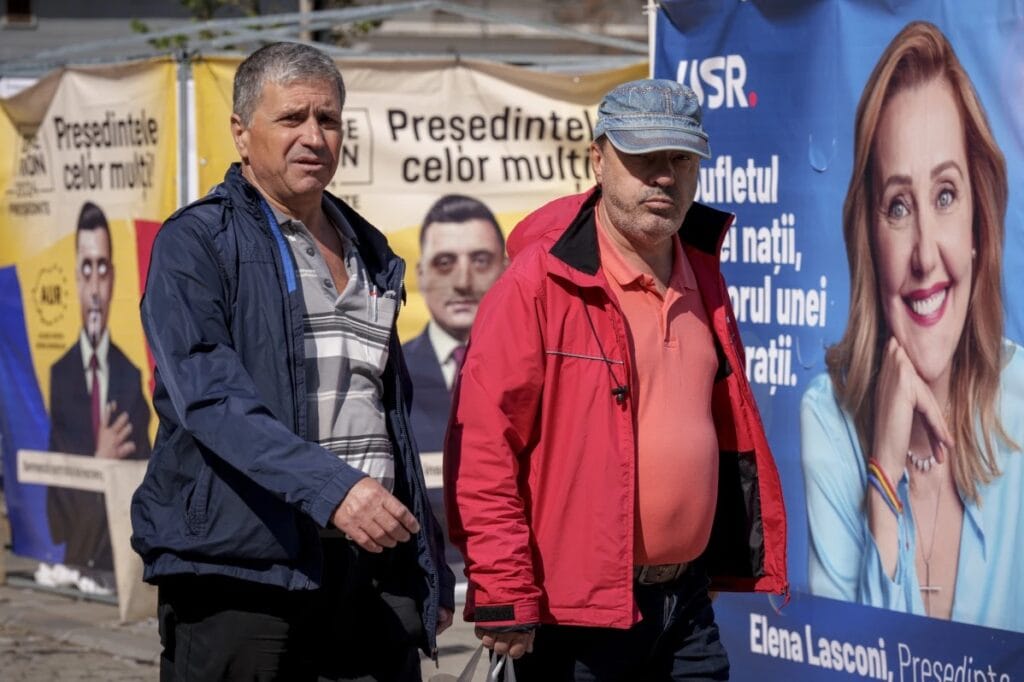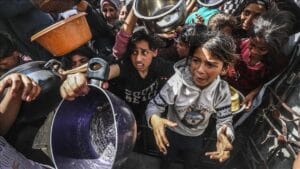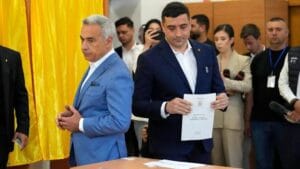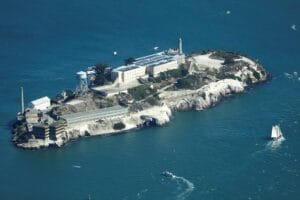Romania votes in presidential election poised for nationalist-leftist showdown
Romania have decided to head to the polls on November 24 for a presidential election that could set up a high-stakes runoff between far-right nationalist George Simion and leftist incumbent Prime Minister Marcel Ciolacu.

Romania have decided to head to the polls on November 24 for a presidential election that could set up a high-stakes runoff between far-right nationalist George Simion and leftist incumbent Prime Minister Marcel Ciolacu.
With 13 candidates competing in the first round, no contender is expected to secure a majority, pushing the election to a decisive second round on December 8. Simion, leader of the far-right Alliance for the Unity of Romanians (AUR), has gained traction with nationalist rhetoric, while Ciolacu enjoys strong backing from the Social Democratic Party (PSD), Romania’s largest political force.
Speaking to supporters in Bucharest last week, Simion vowed to fight for “Romanian values and sovereignty” against what he called “foreign interference and liberal elites.” He said, “This election is a choice between preserving our nation’s identity and giving in to those who want to erase it. The Romanian people deserve leadership that puts them first.”
Ciolacu, addressing a rally in Cluj, took aim at AUR’s rise, warning that “extremist voices threaten to divide us at a time when unity is more important than ever.” He added, “Romania needs stability, not chaos. I will continue to fight for a country that protects all its citizens, not one that pits them against each other.”
The presidency in Romania carries a five-year term and wields substantial powers over national security, foreign policy, and judicial appointments. Analysts predict a polarizing runoff that reflects broader political and social divides in the European Union and NATO member state.
Political analyst Andrei Luca cautioned that the election reflects growing polarization in Romania. “This is not just about electing a president,” Luca said. “It’s about the future direction of the country—whether it moves toward a more inclusive and European path or shifts toward nationalist isolation.”
Adding to the political stakes, Romania will hold parliamentary elections on December 1, determining the country’s next government and prime minister. The dual elections are seen as pivotal in shaping Romania’s domestic and international policies in the coming years.
Observers are closely watching the election as a barometer of rising nationalist sentiment in Eastern Europe amid broader debates over the EU’s future. “What happens in Romania could have ripple effects across the region,” said Claudia Manea, a professor of political science in Bucharest. “The outcome here could embolden similar movements elsewhere or reinforce the EU’s values of integration and cooperation.”










